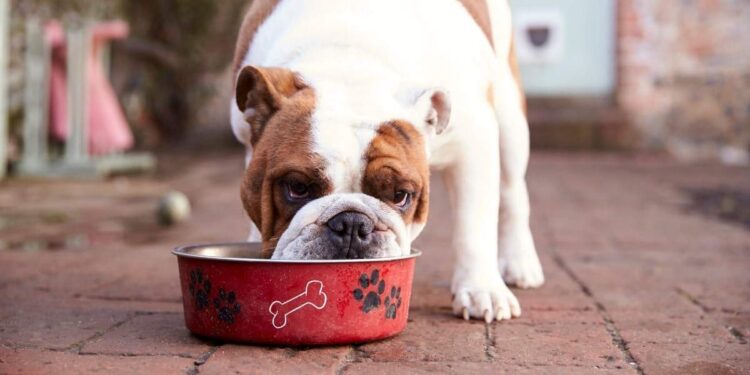People who are dedicated dog lovers tend to be very kind-hearted. Whilst this is a good thing, it can also be a curse in disguise. You need to ask yourself, what food is safe for dogs? Of course, pet food such as Dr. Marty Nature’s Blend which has been specially formulated for dogs is, as are their treats and other products. Unfortunately, there is a lot of food made for humans out there that can cause harm to our canine friends.
Many fruits and vegetables we take for granted as humans can be very harmful to dogs, so it’s important to be aware of the key food that people might forget. This guide will highlight some of your dog’s key dos and don’ts.
Cheese
The question of can dogs eat cheese is varied and dependent on the individual dog. For the most part, it isn’t necessarily toxic to dogs. Although it has no nutritional value, feeding it to them provides nothing but a little smile on your dog’s face (which is why we all do it, right?).
Like similar foods, large quantities of cheese fed to your dog can cause harm by leading to obesity. Cheese should only be given to them in small quantities and infrequently.
Some dogs may even be sensitive to lactose and protein types, leading to inflammatory conditions like dermatitis and pancreatitis. Please always check with a Vet if you are unsure of this.
The frequency, type, and amount of cheese fed play a key role in how safe it is for your dog.
Related: 5 Benefits of Feeding Your Dog a Raw Food
Chocolate
No, dogs should never eat chocolate. Sometimes people think this is some urban legend, but it is, in fact, not. Chocolate contains methylxanthines which is a toxic substance that will work to stop a dog’s metabolic process. Even the tiniest bit of chocolate, particularly dark chocolate, can cause your dog diarrhea and vomiting.
A large amount can cause seizures, irregular heart function, and in the worst of cases, even death. Please do your best to ensure all chocolate is secured away and well out of reach of your dog.
Take care with bin bags, too, as it’s common that dogs will raid your bin and find leftover bits of chocolate. If you think your dog has been in contact with the chocolate, contact your local veterinarian or a pet poison helpline immediately.
Fish
Yes, fish is fine to give dogs. It contains lots of good fats and amino acids that are perfect for your dog’s immune system giving them a well-deserved health boost. Salmon and sardines are two of the best choices of fish to give them. Salmon contains vitamins and proteins, and sardines have soft, digestible bones that boost your dog’s calcium.
On the subject of bones, aside from sardines, this is the only thing you should pay attention to. Always try to pick out small bones before feeding them to your dog – it can be tedious, but it is worth it for your dog’s well-being. Bones, particularly sharp ones, are hard to digest and can cause harm on the way down.
Never feed your dog uncooked or undercooked fish. Cool and fully cooked fish is the best option; limit fish intake to no more than twice a week.
Almonds
Have you ever noticed your dog getting too excited and not biting or chewing its treat before it goes down? Well, this is the case with almonds, especially. Although almonds aren’t necessarily toxic, they can cause a blockage of the esophagus or even tear a windpipe if not broken down correctly.
You should avoid feeding your dog almonds, especially if they are salted. Salted almonds are especially dangerous and can cause increased water retention, which can be fatal for dogs prone to heart disease. It’s always best to avoid salt in any dog diet.
Eggs
Yes, the eggs have an all-clear. So long as the eggs are fully cooked, they are perfectly fine for your dog. Cooked eggs are a fantastic source of protein and can help an upset stomach. So it’s even recommended if you have noticed your dog has recently been under the weather.
Avoid giving them raw eggs as it can contribute to biotin deficiency, so always make sure to cook the eggs all the way through before giving them to your dog. By all means, get an extra cooked egg ready for your four-legged friend in the morning!
Summary
The world of what you can and cannot feed your dog is vast, and there is so much food to question. But one thing is for sure, never feed your dog something you aren’t sure about.
It is always best to check reputable online sources; if you can’t find accurate answers, then best avoid it. Remember, all dogs are different; some may be more prone than others, so always check up with your Vet.























